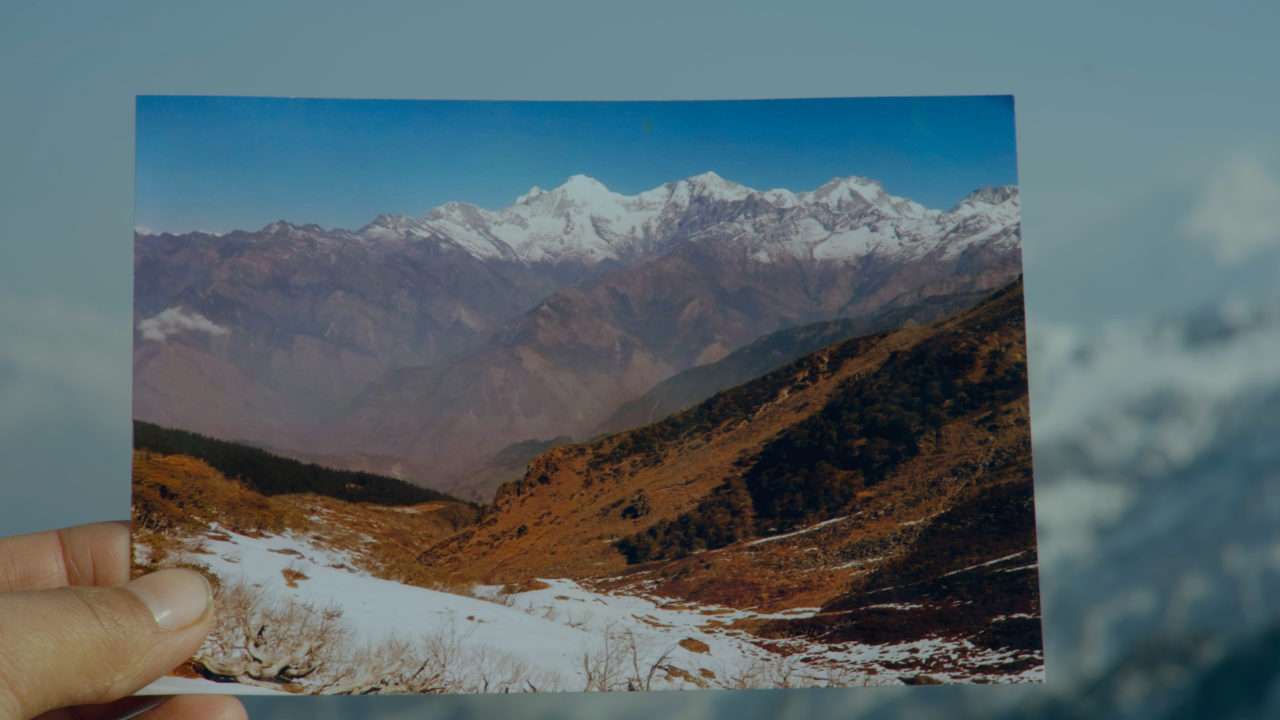Yi-Shan Lo’s “After the Snowmelt” captures a devastating journey, both geographical and emotional. It encapsulates a climb out of grief and inching towards healing. But the road it takes to pass through is tough and cruel, calling forth memories of the past and rendering the slowly soldering grief fresh and anew. It twists the gut yet remains an undeniably vital part of the process of fully coming to terms with sudden, enormous loss.
Not everyone may subscribe to the same philosophy; one must ultimately make individual decisions for the sake of their own beleaguered sanity. Otherwise, how much can you take on yourself before denial and repression suck the life out of you and turn the fondest reminiscence to ash? Yi-Shan acknowledges the path to the realization that grieving can have varied forms and opts for different routes of processing, and all of them are valid and vital in themselves. It is painful but necessary.
Yi-Shan’s curiosity, her desire to know intimately, and her attempts at imagining the travails of her friends are the underlying quest of her film. She has several questions. She may not find the answers but it matters to her that she tried nevertheless. It gives a center to her mourning. The film stems from the death of her friend, Chun, in 2017 while he had gone trekking in Nepal with his partner, Yuen. Originally, the three were supposed to have done the trip together. She was traveling in India and was meant to meet them at a pitstop in Nepal. She had fallen sick, which compelled her to return home to Taiwan instead. When she found Chun no longer responding to her messages, she, fraught with the worst fears, pushed for a search-and-rescue team.
Chun wrote a letter for Yi-Shan during his hike. It punctuates the film. She is overwhelmed by it though Yuen insists the letter, written in tragic desperation, didn’t reflect his final thoughts. In his letter, Chun requests her not to grieve for him too much; she is completely swept by the loss and nudges Yuen to share what had happened. He refuses to talk about it. He is also struggling to move on but resists reverting to the past, well aware of how doubly difficult and harrowing the act of remembering/revisiting can be.

Therefore, he shuts off from her any of his own intimate, personal access to that traumatic final stretch of the trek gone horrifically wrong. He tells her he still is interested in trying many other things. It is essential for him to live Chun’s share, just as he would have liked. Gradually, Yi-Shan packs the film with myriad layers where she tries to unpack not just the shadow of their loss but also delve into her friendship with Chun and what he ultimately imparted to her with the particular life he chose to have with his partner.
Having been friends from high school, albeit separated by a year, she admits to the envy she has had of Chun. But she also came to understand that despite her best efforts at being as adventurous and open to experience as him and Yuen, it might eventually be more draining than how she had presaged. In fact, the way Yi-Shan handles a shifting sense of perspective is among the film’s most intelligent, layered decisions. She had been almost seduced by Chun’s dream of dying in the mountains, but as the film unravels, her relationship with the mountains deepens by pragmatic levels.
Yuen doesn’t immediately jump on board with her proposal of meeting members of the rescue team, but he lets her do it by herself if it could grant her a sliver of release from all the wringing disorientation of not knowing how her best friend passed. It leads her on an expedition to Nepal, embarking on a quest of detail and insight. As she travels through Nepal, she meets the locals who her friends had encountered, people who had been generous and kind to them, feeding them before they resumed their arduous trek. That Chun and Yuen are both able to generate intimacy and a sense of love among strangers, they met for only a while comes across beautifully when a woman recounts her interaction with them.
Yi-Shan puts a lot of mountainous landscapes, both Taiwan’s forests and the high peaks of Nepal, at the forefront. How treacherously, terrifyingly unpredictable weather conditions could be, and the vicious potential of snowdrifts, capable of even killing wild boars — she uncovers their extent only after she lands in Nepal, traversing the regions her friends had made their fateful way through. She even gives a shot at enduring the circumstances, albeit starkly different from how it had been earlier; inside the cave, Chun and Yuen had taken shelter from the sudden swathes of snow, ultimately getting trapped in it for as long as forty-seven days, Yeun surviving the final stretch merely on salt.
“After the Snowmelt” is profoundly introspective, comfortable in its sense of calm, concealing its own unsettling stratum. Besides the enveloping sense of natural landscapes, unlocking what an equation with them may entail in terms of either plunging more audaciously into life or being tempered, Yi-Shan traces her own internal journey with unerring honesty and hard-eyed appraisal of her emotional upheavals.




![In the Tall Grass Netflix [2019] Review: One for the Stephen King purists only](https://79468c92.delivery.rocketcdn.me/wp-content/uploads/2019/10/In-The-Tall-Grass-Netflix-768x323.jpg)

![T2 Trainspotting [2017]: An Acid Trip Down the Memory Lane](https://79468c92.delivery.rocketcdn.me/wp-content/uploads/2017/05/trainspotting-2-empire-cover.jpg)

